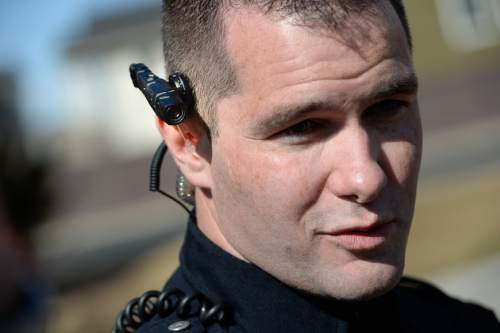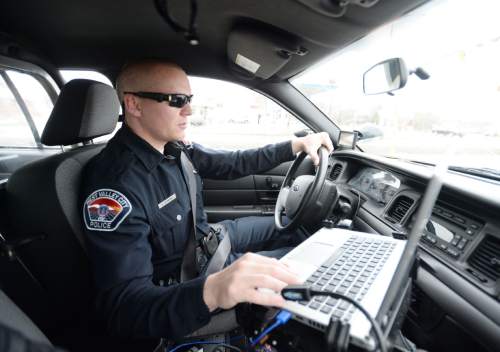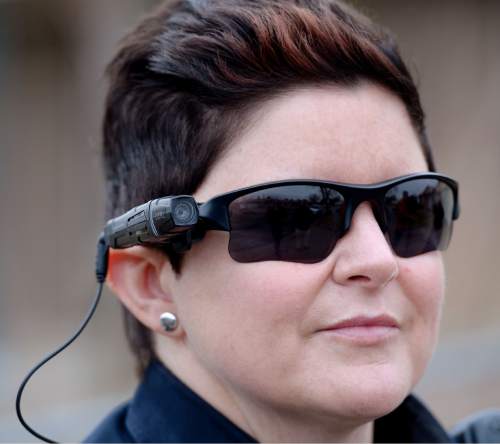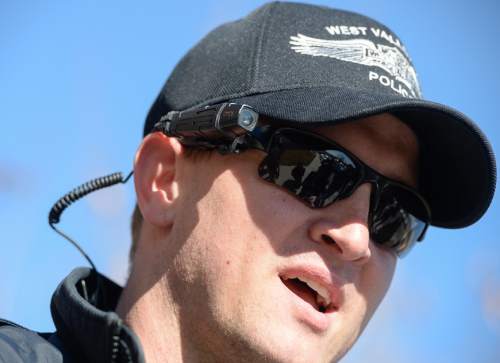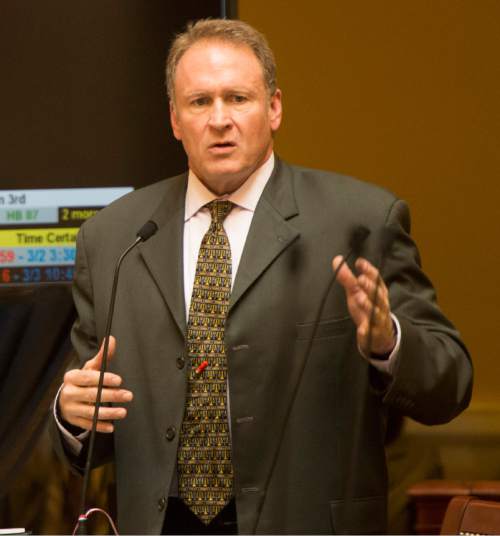This is an archived article that was published on sltrib.com in 2015, and information in the article may be outdated. It is provided only for personal research purposes and may not be reprinted.
If they're not there already, police body cameras may be coming to a jurisdiction near you.
Several Utah lawmakers are interested in crafting a new law directing departments when and where police must wear the miniature cameras, as well as setting standards for when they must — and must not — be recording, how long the recordings are kept and who has access to the captured video.
Representatives of the state's police chiefs and sheriffs departments, however, are uncomfortable with the state dictating policy, preferring that they leave wiggle room, because each department is slightly different.
Davis County Sheriff Todd Richardson warned against a "cookie-cutter" policy that wouldn't give police and sheriff's deputies the flexibility they need to do their jobs. For example, he said, his deputies spend about half of their time acting as paramedics, responding to medical issues. Recording those encounters could violate citizens' health privacy and federal law.
"Although it seems good to have a cookie-cutter policy to cover the whole state, it doesn't apply that way and it doesn't work out that way," Richardson said.
And, say law officers, small-town police departments in rural parts of the state may not be able to absorb the cost of purchasing the cameras and — more significantly — the storage and maintenance of the data they collect.
Sen. Howard Stephenson, R-Draper, chairman of the Legislature's Administrative Rules Review Committee, was unconvinced by the argument.
"I reject that," said Stephenson, who has led the inquiry into issues of police use of force and body cameras. "The people who live in a small communities are just as deserving of the full protection available through technology and those police officers are, as well."
If the body cameras are valuable tools — as the police agencies represented all agreed they are — then, Stephenson said, the state should find a way to cover the costs in order to ensure cameras can be deployed. That may include state help to buy the cameras, pay for storage space for the recordings or staff to manage the data.
And Sen. Mark Madsen, R-Saratoga Springs, said it should be legislators who are making the calls on how and when cameras are used, and to ensure the public's privacy is adequately protected.
"This is a huge issue and I think we need to do it in statute, as much as possible, to tighten it up," Madsen said. "[Otherwise] we're not doing our job. We're asking them to do our job and that's not fair to the people we represent and that's not fair to the folks on the street carrying this out."
West Jordan Police Chief Doug Diamond said the development of body cameras has been the greatest technological advancement for law enforcement since the radio, but they do have limitations.
And he argued that the videos should not be released to the public unless there are instances of officer misconduct or if the matters go to court.
"It is a tool that can be used by law enforcement. It can be used to hold us accountable and it can hold the public accountable and, in some respects, have some transparency within law enforcement and the government," Diamond said. But policymakers need to move methodically and thoughtfully in crafting rules for the use of the cameras, he said.
Bountiful Police Chief Tom Ross, with the Utah Chiefs of Police Association, said it is important to consider who can access the police video since citizens don't want to see "the worst times of their lives played out on the 6 and 10 o'clock news."
He also warned that officers need to be given some latitude in case they make a mistake or forget to turn the camera on.
Madsen said that's not the way it should work. A driver who makes a mistake and goes too fast will get ticketed, he said, so police shouldn't be treated any differently.
Marina Lowe, an attorney with the American Civil Liberties Union of Utah, and the Libertas Institute's Josh Daniels encouraged the Legislature to take the lead on putting together statewide standards, noting that there is currently little uniformity in body-camera policies among police departments around the state.
Interests in privacy and public transparency shouldn't vary from one jurisdiction to the next, Daniels said.
"When the use of a camera triggers these kind of fundamental interests … those elements of the policy should not vary from department to department," he said.
The committee plans to meet again next month for more discussion of the issue before it recommends a course of action to the Legislature's Law Enforcement and Criminal Justice Committee.
Twitter: @RobertGehrke


